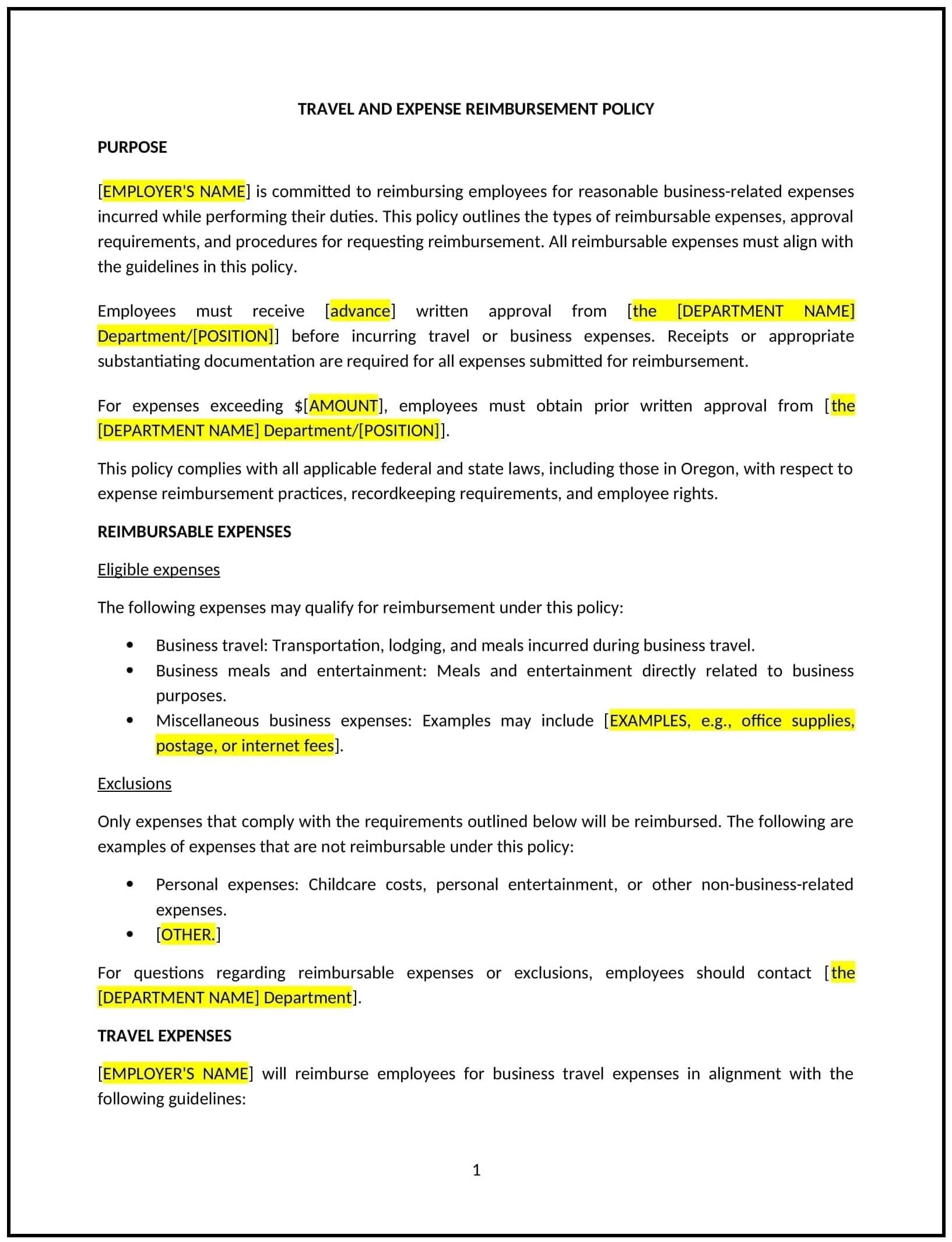Travel and expense reimbursement policy (Oregon): Free template
Got contracts to review? While you're here for policies, let Cobrief make contract review effortless—start your free review now.

Customize this template for free
Travel and expense reimbursement policy (Oregon)
This travel and expense reimbursement policy is designed to help Oregon businesses establish clear guidelines for employees incurring business-related travel and expenses. It outlines procedures for submitting expense reports, eligible expenses, and reimbursement timelines.
By adopting this policy, businesses can streamline expense management, promote accountability, and ensure fair reimbursement for employees.
How to use this travel and expense reimbursement policy (Oregon)
- Define eligible expenses: Clarify what types of expenses are reimbursable, such as transportation, meals, and lodging.
- Establish submission procedures: Outline steps for employees to submit expense reports, including required documentation and deadlines.
- Set reimbursement timelines: Specify how long employees can expect to wait for reimbursement after submitting an expense report.
- Address spending limits: Provide guidelines for reasonable spending limits on meals, lodging, and other expenses.
- Train employees: Educate staff on the policy and proper procedures for submitting expense reports.
- Review and update: Assess the policy annually to ensure it aligns with evolving business needs and financial practices.
Benefits of using this travel and expense reimbursement policy (Oregon)
This policy offers several advantages for Oregon businesses:
- Streamlines expense management: Simplifies the process of tracking and reimbursing business-related expenses.
- Promotes accountability: Ensures proper documentation and approval of expenses.
- Enhances transparency: Provides clear guidelines for employees and reduces misunderstandings.
- Builds trust: Demonstrates fairness in reimbursing employees for business-related costs.
- Reduces financial risks: Helps businesses avoid overspending or improper use of company funds.
Tips for using this travel and expense reimbursement policy (Oregon)
- Communicate the policy: Share the policy with employees and include it in the employee handbook.
- Provide training: Educate employees on the policy and proper procedures for submitting expense reports.
- Monitor compliance: Regularly review expense reports to ensure adherence to the policy.
- Address issues promptly: Take corrective action if expenses are improperly documented or exceed spending limits.
- Update regularly: Assess the policy annually to ensure it aligns with evolving business needs and financial practices.